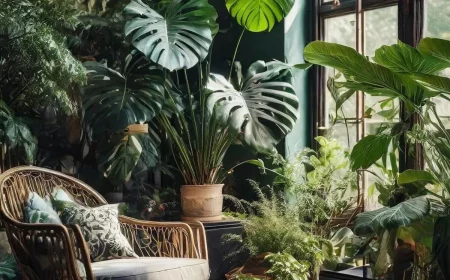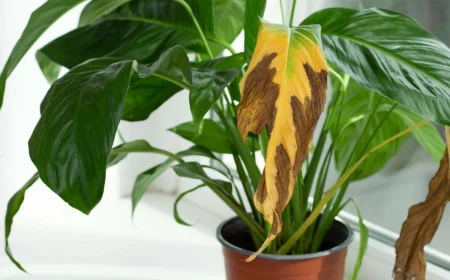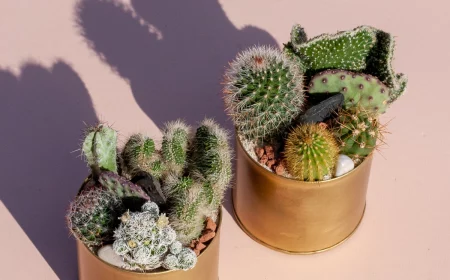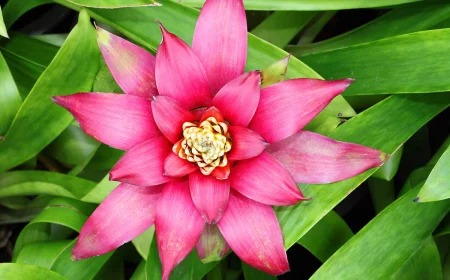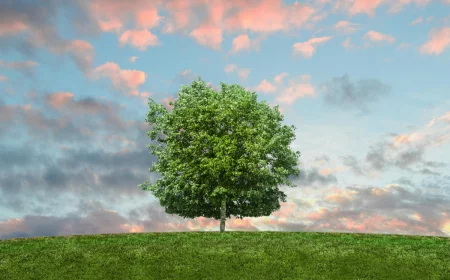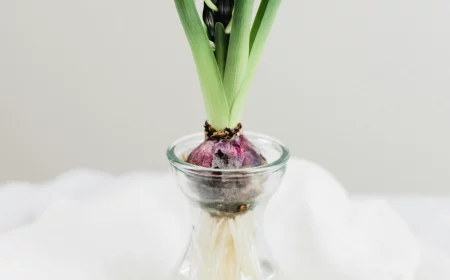10 Amazing Mulch Alternatives For A Healthy Garden
In the verdant domain of gardening, mulch stands as an essential element in the cultivation of a thriving landscape. This critical component is often overlooked. However, it plays a vital role in moisture retention, weed suppression, and safeguarding the soil against the severity of natural elements. Amidst a growing movement toward sustainability and eco-conscious living, the gardening community is actively seeking out innovative alternatives to conventional mulch materials. That’s why today we will venture into the world of mulch alternatives, we uncover a range of options that not only promote the health of our gardens but also contribute positively to the well-being of our planet.
Mulch stands as an essential element in the cultivation of a thriving landscape
In this article
What Is Mulch?
Mulch, fundamentally, is a protective layer spread atop the soil in gardens and landscapes. Its utility is diverse as it aids in moisture conservation, weed management, and the enhancement of soil fertility. The traditional mulching palette ranges from organic materials like wood chips to inorganic solutions such as plastic sheeting. But nowadays it is expanding, as the gardening community embraces a wider array of materials. Each alternative brings its own set of benefits to the table. Each enriches the soil in unique ways and caters to the specific needs of different plant types. This broadening of mulching options signifies a shift towards more adaptable and environmentally conscious gardening practices, enriching the dialogue on soil health and plant care.
Mulch is a protective layer spread atop the soil in gardens and landscapes
Should I Mulch or Not?
The question of whether to mulch is met with a resounding endorsement from gardening experts. The application of a mulch layer is widely recognized for its ability to bolster plant health and soil vitality. Nonetheless, the pursuit of mulching alternatives is driven by various considerations. This includes the cost, availability, and the environmental impact of conventional mulch materials. The exploration of mulch alternatives presents gardeners with a spectrum of choices. Each tailored to meet the nuanced demands of diverse gardening projects. These alternatives not only address practical concerns but also align with a growing desire to cultivate gardens that are both vibrant and environmentally responsible, marking a thoughtful evolution in gardening practices.
The question of whether to mulch is met with a resounding endorsement from gardening experts
The Best Mulch Alternatives
The realm of gardening is witnessing a significant transformation, marked by an enhanced focus on sustainability and the reduction of our environmental footprint. This evolution in gardening philosophy has sparked a keen interest in alternatives to traditional mulching materials, which offer both effectiveness and environmental friendliness. For gardeners, whether beginners or those with years of experience under their belts, this shift presents an opportunity to explore new methodologies for cultivating a healthy garden that exists in harmony with nature. The adoption of mulch alternatives not only reflects a change in gardening practices but also embodies a broader commitment to sustainable living.
The adoption of mulch alternatives embodies a broader commitment to sustainable living
Leaves
Fallen leaves are generously provided by nature each autumn. They also serve as an exceptional, cost-effective mulching material. When shredded, they become a nutrient-rich layer that not only blankets the soil but also enriches it through decomposition. This process introduces vital organic matter back into the earth, fostering a vibrant, fertile garden bed. Utilizing leaves as mulch not only recycles natural resources but also promotes a healthier garden ecosystem. This makes them an excellent choice for gardeners looking to enhance soil quality while practicing sustainable gardening methods.
Fallen leaves are generously provided by nature each autumn
Grass clippings
Grass clippings are often regarded as a mere byproduct of lawn maintenance. However, they possess valuable gardening properties. Rich in nitrogen, these clippings act as a natural fertilizer, contributing significantly to the nutritional needs of garden beds. When used as mulch, they form a dense layer that retains soil moisture and temperature, creating an optimal growth environment. Additionally, this green mulch gradually decomposes, infusing the soil with organic nutrients essential for plant development. Grass clippings are an efficient, eco-friendly mulch alternative that leverages lawn waste to nourish and protect garden plants.
Grass clippings possess valuable gardening properties
Straw or hay
Straw or hay emerges as a stellar mulching choice. These materials are particularly favored in vegetable gardens for their dual functionality. It not only suppresses weeds effectively, reducing the need for chemical herbicides, but also contributes valuable organic matter to the soil as it decomposes. This decomposition process enhances soil structure and fertility, benefiting plant roots and promoting healthier growth. Straw or hay mulch also helps maintain soil moisture, making it an invaluable asset in creating a productive, sustainable garden environment that supports a bountiful harvest.
Straw or hay emerges as a stellar mulching choice
Pine needles
Pine needles, collected from the forest floor or after seasonal tree trimming, provide a unique mulching solution for acid-loving plants. These needles slowly release acid into the soil as they break down, creating an ideal pH environment for species such as blueberries and azaleas. Beyond their soil acidification benefits, pine needles also play a crucial role in preventing soil erosion, thanks to their ability to form a stable, interlocking mat on the garden floor. Their lightweight nature and slow decomposition rate make pine needles a durable, visually appealing mulch option that enhances garden health and aesthetics.
Pine needles provide a unique mulching solution for acid-loving plants
Wood chips or bark
Wood chips or bark can be sourced from local tree services or gardening centers. These materials offer a long-lasting and visually appealing mulch alternative. Not only do they suppress weeds and retain soil moisture but also add a polished look to garden beds. As wood chips or bark slowly decompose, they contribute organic matter to the soil. This improves its structure and fertility over time. Their durability makes them an excellent choice for pathways and perennial beds, where they can provide benefits for several seasons. Utilizing wood chips or bark as mulch not only recycles wood waste but also elevates the garden’s aesthetic appeal while fostering a healthy soil ecosystem.
Wood chips or bark can be sourced from local tree services or gardening centers
Compost
Compost stands out as a versatile powerhouse in the garden. It serves both as an effective mulch and a potent soil amendment. By layering compost on garden beds, gardeners can introduce a wealth of essential nutrients directly into the soil, significantly enhancing its fertility and structure. This dual-purpose application not only encourages vigorous plant growth but also helps retain soil moisture and suppress weeds, creating a thriving environment for plants. Incorporating compost into garden practices supports a cycle of sustainability, transforming kitchen and garden waste into a valuable resource that nourishes the garden ecosystem.
Compost stands out as a versatile powerhouse in the garden
Rubber mulch
Rubber mulch is crafted from recycled tires. This mulch alternative presents a long-lasting mulching solution particularly suited for playgrounds and landscaping projects. Its resilience to weather and wear makes it a popular choice for areas requiring durable ground cover. However, unlike organic mulches, rubber mulch does not contribute nutrients to the soil and can potentially leach harmful chemicals over time. While it excels in reducing weed growth and retaining soil moisture, gardeners should weigh its longevity and aesthetic appeal against its environmental impact and limited soil health benefits when considering its use.
Rubber mulch is crafted from recycled tires
Pebbles or gravel
Pebbles or gravel introduce an element of aesthetic refinement to garden beds. They offer a sleek, decorative finish alongside practical gardening benefits. These inorganic mulch alternatives excel in improving soil drainage and minimizing weed proliferation, making them ideal for succulent gardens, pathways, and areas where water retention is a concern. While they do not enrich the soil with organic matter, their permanence and minimal maintenance requirements make them a favored choice for creating stylish, low-maintenance landscapes that remain tidy and weed-free throughout the year.
These inorganic mulch alternatives excel in improving soil drainage
Cardboard or newspaper
Utilizing layers of cardboard or wet newspaper as mulch provides an eco-friendly, cost-effective solution for weed suppression. This method capitalizes on readily available materials, layering them over soil to block sunlight and prevent weed growth. Over time, these paper products naturally break down, contributing organic matter to the soil and fostering a healthy microbial environment. This approach not only recycles waste materials but also promotes a healthier garden by improving soil structure and fertility, offering an accessible mulching option for gardeners committed to sustainable practices.
These paper products naturally break down
Cocoa hulls
Cocoa hulls offer a uniquely attractive mulching choice. They are distinguished by their rich color and pleasant aroma that can enhance the sensory appeal of garden beds. Beyond their aesthetic contributions, cocoa hulls also suppress weeds and retain soil moisture effectively. However, their use comes with a caveat. Cocoa hulls contain theobromine, a substance harmful to pets if ingested. Gardeners with curious pets should exercise caution, considering the safety of their furry companions alongside the visual and olfactory benefits cocoa hulls provide to the garden landscape.
Cocoa hulls offer a uniquely attractive mulching choice
Exploring alternatives to traditional mulch opens up new avenues for garden maintenance and aligns with the principles of sustainable gardening. Each alternative offers unique advantages. From improving soil health to enhancing the aesthetic appeal of your garden. As we continue to embrace eco-friendly practices, experimenting with different mulch alternatives can lead to healthier gardens and a healthier planet. So, why not try something new in your garden this season and see what a difference it can make?
Exploring alternatives to traditional mulch opens up new avenues for garden maintenance
















